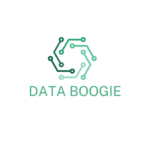Key Takeaways
- Big Data’s Influence: Big data is revolutionizing industries by improving decision-making processes and enhancing customer experiences through valuable insights.
- Emerging Technologies: Advancements like artificial intelligence, edge computing, cloud solutions, and blockchain are driving changes in data analytics, increasing efficiency and security.
- Investment Surge: With global investment in big data technologies projected to surpass $274 billion, companies are prioritizing big data strategies to boost operations and competitive advantage.
- Skills Demand: The need for data professionals is rising, with an estimated 3 million job openings expected in data analytics in the U.S. by 2025, highlighting a growing skills gap.
- Regulatory Landscape: Changes in data privacy regulations like GDPR and CCPA are influencing how organizations manage consumer data, emphasizing the importance of compliance.
- Cross-Industry Applications: Big data is being effectively utilized across various sectors such as healthcare, finance, retail, and manufacturing to enhance outcomes, optimize operations, and drive innovation.
Big data is reshaping industries and driving innovation at an unprecedented pace. As organizations harness vast amounts of data, they uncover insights that can transform decision-making processes and enhance customer experiences. Staying updated on the latest trends and breakthroughs in big data is crucial for businesses aiming to maintain a competitive edge. From advancements in artificial intelligence to emerging data privacy regulations, the landscape of big data is constantly evolving. This article delves into the most significant recent developments, offering a clear view of what’s shaping the future of data analytics. Whether it’s groundbreaking technologies or shifts in market dynamics, understanding these changes empowers professionals to leverage big data effectively.
Big Data News
Recent developments in big data create significant shifts in industries, driving innovation and efficiency. Staying updated on these trends is crucial for professionals aiming to leverage big data effectively.
Emerging Technologies
 Emerging technologies significantly influence big data analytics. Key trends include:
Emerging technologies significantly influence big data analytics. Key trends include:
- Artificial Intelligence: AI enhances data processing capabilities, allowing for real-time analytics and improved decision-making. Businesses increasingly use machine learning algorithms for predictive analytics.
- Edge Computing: Processing data closer to its source reduces latency and bandwidth usage. Edge computing supports timely data analysis, essential for IoT applications.
- Cloud Data Solutions: Cloud computing offers scalable storage and processing power. Organizations adopt cloud-based platforms for flexibility and cost-effectiveness in handling vast datasets.
- Blockchain Technology: Blockchain improves data security and transparency. Its decentralized nature helps in maintaining data integrity across multiple transactions.
- Increased Investment: Global investment in big data technologies is projected to exceed $274 billion by 2022. Companies prioritize big data strategies to enhance operations and customer experiences.
- Skills Demand: The demand for data professionals, such as data scientists and analysts, continues to rise. By 2025, an estimated 3 million job openings in data analytics are expected in the U.S.
- Regulatory Changes: New regulations are reshaping how organizations handle data. Compliance with GDPR and CCPA influences data management strategies and consumer trust.
- Integration of AI: AI’s integration with big data platforms enriches data insights. This trend fosters automated data analysis, enabling quicker, more accurate decision-making processes.
Notable Big Data Events
Big data continues to influence various sectors through pivotal events that showcase innovations and foster collaboration. Here are some key events in the world of big data.
Conferences and Meetups
- Strata Data Conference: This conference gathers data professionals to discuss cutting-edge developments in big data, artificial intelligence, and machine learning. Focus areas include data strategy, analytics, and the impact of emerging technologies.
- Big Data LDN: Held annually in London, Big Data LDN connects industry experts and practitioners. The event features talks on data-driven strategies, case studies, and workshops covering best practices for harnessing big data.
- Data Science Conference: This initiative offers networking opportunities for data scientists, engineers, and analysts. It emphasizes real-world applications of big data and challenges professionals to share experiences and insights.
- Open Data Science Conference (ODSC): ODSC focuses on the open-source community in data science. Attendees explore tools, technologies, and methodologies for effective big data analytics and visualization.
- The Data Impact Awards: These awards celebrate organizations excelling in data usage to drive business outcomes. Categories include innovation, strategy, and social impact, highlighting achievements in big data analytics.
- Big Data Excellence Awards: This program recognizes companies utilizing big data technologies to create value. Awardees demonstrate significant advancements in data management, analytics, and application.
- International Data Science Awards: This global competition showcases outstanding projects in data science and analytics. Winners provide exemplary solutions to industry challenges, facilitating knowledge sharing in the big data community.
- Big Data 50 Awards: Honoring the top 50 leaders in big data across various sectors, this initiative identifies individuals and organizations that drive innovation and influence strategic decision-making with data.
Significant Big Data Research
Significant advancements continue in big data research, influencing various industries and improving analytical capabilities. New studies shed light on innovative methodologies and profound insights that shape the future of data analytics.
Innovative Studies
- Data Integration Techniques: Researchers developed new methods for integrating disparate data sources, enhancing the ability to generate insights from multiple
 datasets.
datasets. - AI-Driven Predictive Models: Studies showed the effectiveness of machine learning algorithms in predicting consumer behavior, allowing businesses to tailor their marketing strategies.
- Privacy-Preserving Analytics: Researchers focused on approaches that enable data analysis while ensuring compliance with privacy regulations, thus promoting data utility without compromising security.
- Real-Time Data Processing: Innovations in stream processing enable organizations to analyze data in real time, providing immediate insights that facilitate prompt decision-making.
- Increased Data Value: Recent research indicates that organizations leveraging big data analytics see revenue growth rates of 5-10% compared to those not utilizing such insights.
- Skill Gaps: A notable finding reveals that 60% of companies experience challenges in hiring qualified data professionals, highlighting an urgent need for educational programs focused on big data skills.
- Consumer Trust: Studies show that transparency in data practices significantly enhances consumer trust, with 70% of consumers more likely to engage with brands that prioritize data privacy.
- Investment Growth: Data reveals that global spending on big data solutions exceeded $250 billion in 2022, with a projected annual growth rate of 14% through 2026, emphasizing the increasing reliance on data-driven strategies.
Applications Of Big Data
Big data finds applications across various sectors, driving innovation and efficiency. Businesses leverage data analytics to gain insights, optimize processes, and enhance customer experiences.
Industries Impacted
- Healthcare: Big data analytics improves patient outcomes by enabling personalized medicine, predictive analysis, and optimized resource allocation.
- Finance: Financial institutions utilize big data for fraud detection, risk management, and personalized customer services, enhancing security and user engagement.
- Retail: Retailers analyze consumer behavior through purchasing patterns, inventory management, and targeted marketing strategies, improving sales and customer satisfaction.
- Manufacturing: Manufacturers use big data for predictive maintenance, supply chain optimization, and quality control, reducing operational costs and downtime.
- Transportation: Transportation companies employ big data to enhance route optimization, reduce fuel consumption, and improve service delivery through real-time analytics.
- Google: Google’s search engine uses big data algorithms to deliver personalized search results, optimizing user experience and engagement.
- Netflix: Netflix employs data analytics to recommend content based on user preferences, significantly increasing viewership and customer retention.
- Amazon: Amazon leverages big data for dynamic pricing and inventory management, improving customer experience and sales efficiency.
- IBM Watson: IBM Watson utilizes big data in healthcare, analyzing vast amounts of medical data to assist in diagnosis and treatment recommendations.
- Walmart: Walmart analyzes big data to manage inventory efficiently and optimize supply chain operations, enhancing operational efficiency and customer satisfaction.
Staying ahead in the big data landscape is crucial for businesses aiming for success. The rapid advancements in technology and changing regulations present both opportunities and challenges. By embracing these innovations and investing in skilled professionals, organizations can harness the power of big data to enhance decision-making and improve customer experiences. Events and awards within the sector foster collaboration and recognize excellence, further driving the industry’s growth. As big data continues to evolve, its impact on various sectors will only deepen, reinforcing its role as a vital component of modern business strategies. Adapting to these changes will empower companies to thrive in an increasingly data-driven world.



